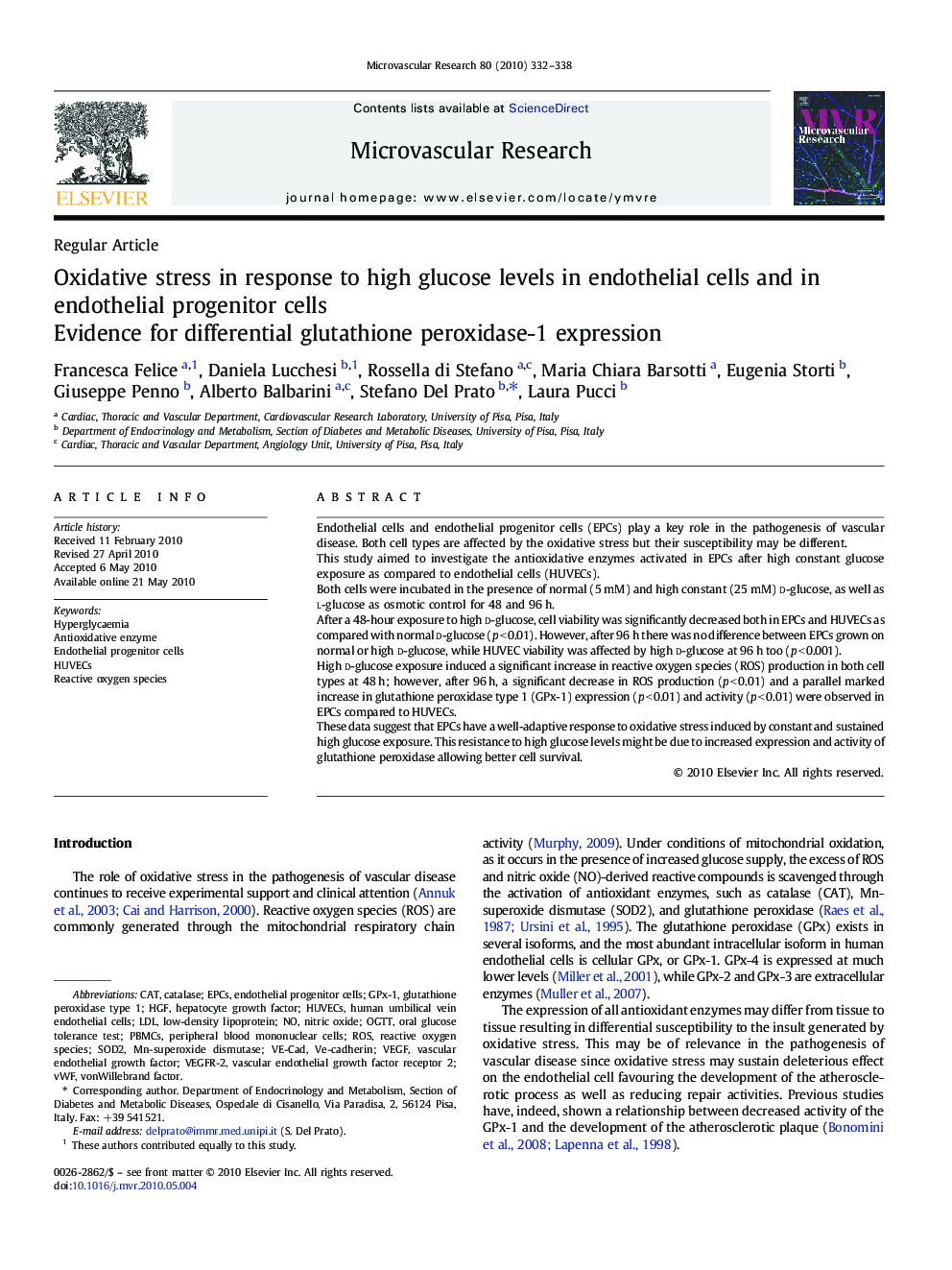| Article ID | Journal | Published Year | Pages | File Type |
|---|---|---|---|---|
| 1995116 | Microvascular Research | 2010 | 7 Pages |
Endothelial cells and endothelial progenitor cells (EPCs) play a key role in the pathogenesis of vascular disease. Both cell types are affected by the oxidative stress but their susceptibility may be different.This study aimed to investigate the antioxidative enzymes activated in EPCs after high constant glucose exposure as compared to endothelial cells (HUVECs).Both cells were incubated in the presence of normal (5 mM) and high constant (25 mM) d-glucose, as well as l-glucose as osmotic control for 48 and 96 h.After a 48-hour exposure to high d-glucose, cell viability was significantly decreased both in EPCs and HUVECs as compared with normal d-glucose (p < 0.01). However, after 96 h there was no difference between EPCs grown on normal or high d-glucose, while HUVEC viability was affected by high d-glucose at 96 h too (p < 0.001).High d-glucose exposure induced a significant increase in reactive oxygen species (ROS) production in both cell types at 48 h; however, after 96 h, a significant decrease in ROS production (p < 0.01) and a parallel marked increase in glutathione peroxidase type 1 (GPx-1) expression (p < 0.01) and activity (p < 0.01) were observed in EPCs compared to HUVECs.These data suggest that EPCs have a well-adaptive response to oxidative stress induced by constant and sustained high glucose exposure. This resistance to high glucose levels might be due to increased expression and activity of glutathione peroxidase allowing better cell survival.
